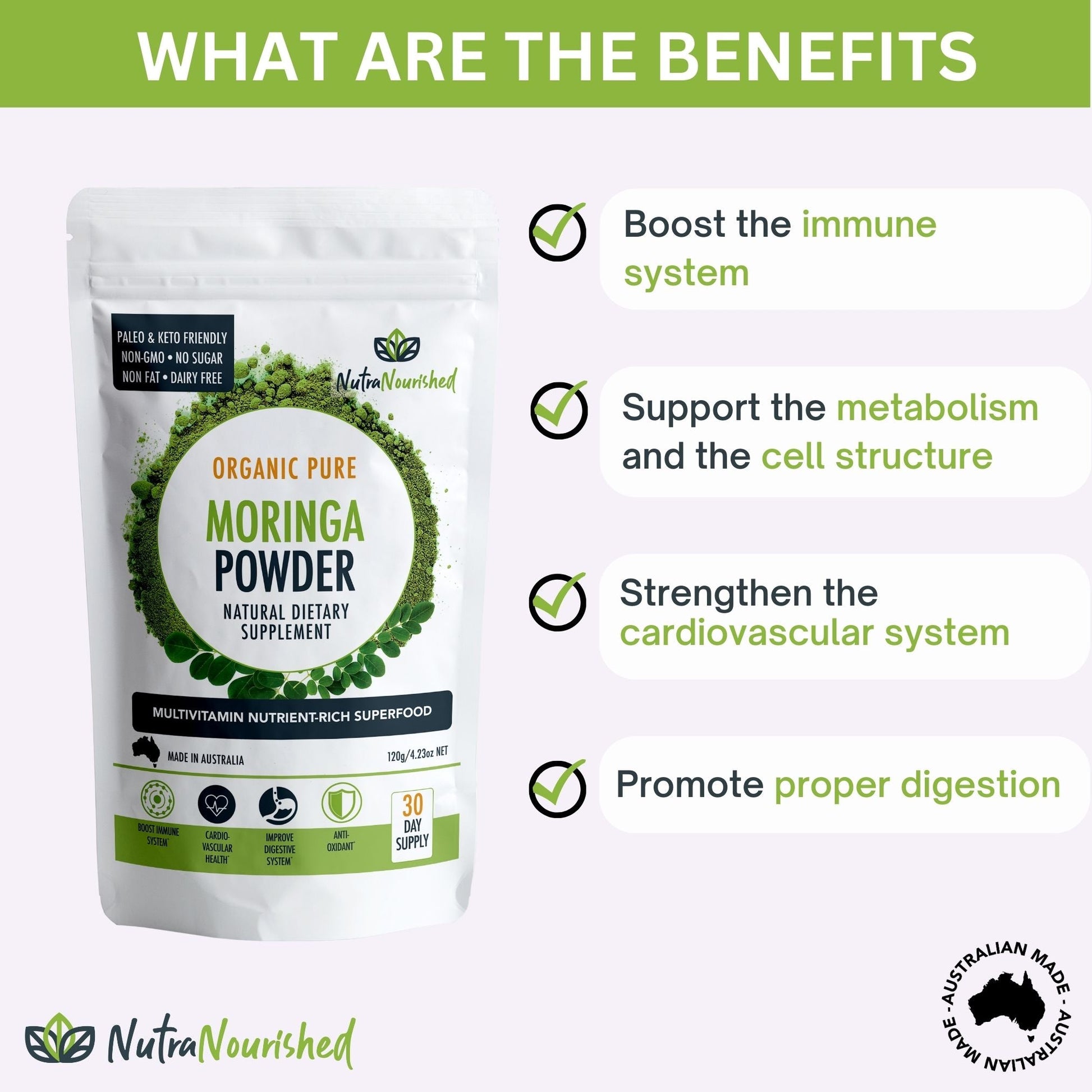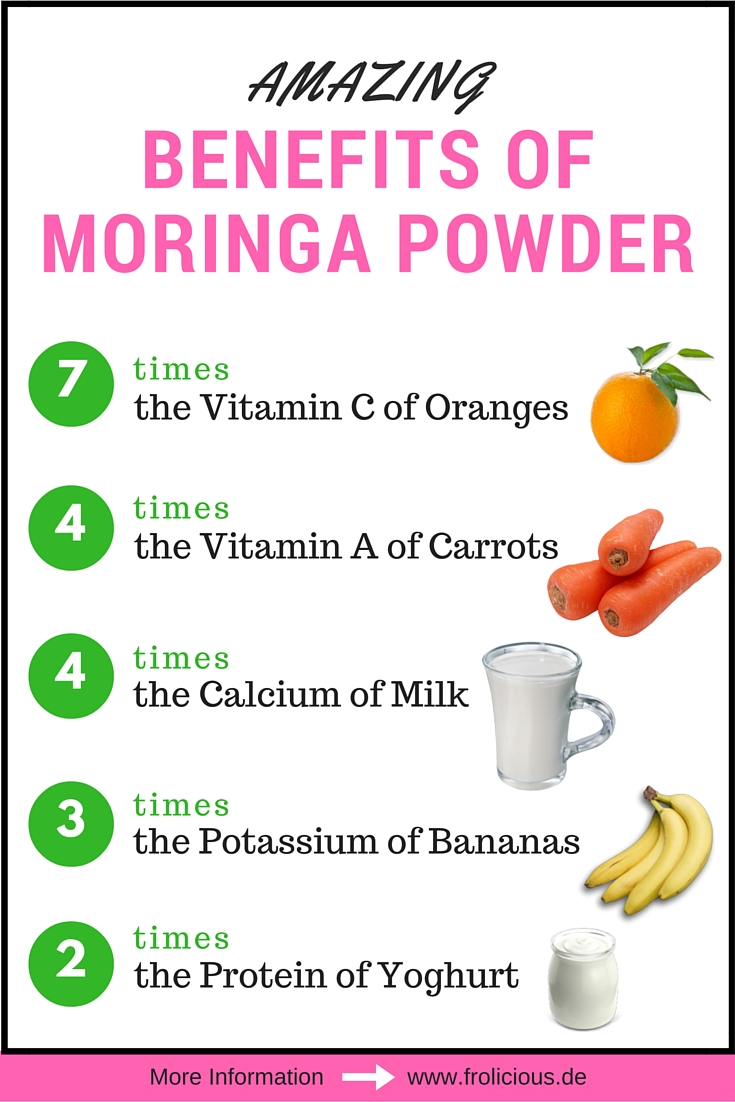Malunggay or Moringa plants contain herbal seeds which can be steamed, roasted or boiled while preparing various food items.
Moringa seeds are enriched with iron, amino acids, zinc, calcium as well as vitamins, which significantly improve our issues related to sleep and blood sugar levels. It is especially recommended for people with diabetes.
Moringa seeds are enriched with iron, amino acids, zinc, calcium as well as vitamins, which significantly improve our issues related to sleep and blood sugar levels. It is especially recommended for people with diabetes.
Moringa tea is derived from the leaves of the Moringa oleifera tree, which is native to South Asia. It has gained popularity in recent years due to its potential health benefits. Here are 7 popular health benefits associated with Moringa tea:
1. Rich in nutrients
2. Antioxidant properties
3. Anti-inflammatory effects
Some compounds found in Moringa tea, such as isothiocyanates and flavonoids, have been shown to possess anti-inflammatory properties. Chronic inflammation is associated with various health conditions, including arthritis, diabetes, and obesity. Consuming Moringa tea may help reduce inflammation in the body.
4. Blood sugar regulation
Preliminary studies suggest that Moringa tea may have a positive impact on blood sugar levels. It may help regulate glucose metabolism and improve insulin sensitivity, making it potentially beneficial for individuals with diabetes or those at risk of developing the condition. However, more research is needed to establish its effectiveness.
5. Supports cardiovascular health
Moringa tea may have cardiovascular benefits. Some research suggests that it can help lower cholesterol levels and reduce blood pressure, which are risk factors for heart disease. These effects are thought to be due to the presence of bioactive compounds in Moringa leaves.
6. Digestive health
Moringa tea has been traditionally used to support digestive health. It may help alleviate constipation and promote regular bowel movements. Additionally, Moringa leaves contain compounds that have antimicrobial properties, which may help combat certain bacterial infections in the gut.
7. Potential anticancer properties
Some studies have explored the potential anticancer properties of Moringa tea due to its high antioxidant content. Test-tube and animal studies have shown promising results, but more research is needed to determine its effectiveness in humans.
Risks of Consuming Moringa Tea
While Moringa tea shows promise in various areas of health, more research is needed to fully understand its benefits and potential side effects.
If you have any specific health concerns or are taking medications, consult with a healthcare professional before incorporating Moringa tea into your routine.
People who have digestive issues must include these seeds in their daily diet as it is enriched with fiber.
While Moringa tea is safe for most people when consumed in moderation, there are a potential side effects and risks to be aware of:
1. Allergic reactions
Some individuals may be allergic to Moringa tea. If you have a known allergy to plants in the Moringaceae family, such as ragweed or birch, I will suggest you to avoid trying Moringa products.
2. Digestive issues
Moringa tea has been reported to have a laxative effect in some individuals. Consuming excessive amounts of Moringa tea may lead to diarrhea, stomach cramps, or an upset stomach. Start with a small amount and monitor your body's response.
3. Interference with medication
Moringa tea may interact with certain medications. It contains compounds that can affect the metabolism of drugs in the body, particularly those metabolized by the liver's cytochrome P450 enzymes.
If you are taking any medications, especially those with a narrow therapeutic window, I will suggest you to consult with your healthcare provider before consuming Moringa tea.
4. Blood-thinning effects
Moringa leaves contain compounds that possess mild blood-thinning properties. While this effect is generally not significant, individuals taking blood-thinning medications (e.g., warfarin) should exercise caution and consult with a healthcare professional before consuming Moringa tea regularly.
5. Contamination risk
Moringa tea products can sometimes be contaminated with harmful microorganisms if they are not processed, stored, or prepared properly. I personally purchase Moringa tea from reputable sources and follow appropriate storage and preparation guidelines to minimize the risk of contamination.
Just like any herbal tea, drink Moringa tea in moderation and consult with a healthcare professional, especially if you have any underlying health conditions or are taking medications. They can provide personalized advice based on your specific circumstances.
How To Store and Prepare Moringa Tea To Minimize Risk?
- Storage
Store Moringa tea in an airtight container in a cool, dry place away from direct sunlight. This helps preserve its freshness and minimizes the risk of moisture, which can promote the growth of microorganisms.
- Hygiene
Practice good hygiene when handling Moringa tea. Wash your hands thoroughly before touching the tea leaves or preparing the tea.
- Source
Choose a reputable source for Moringa tea. Look for products that have undergone quality testing and are certified organic, if possible to ensure that the tea is free from contaminants.
- Water quality
Use clean, filtered water when preparing Moringa tea. If your tap water is not safe for drinking, consider using bottled water or boiling and cooling the water before use.
- Cleaning equipment
Clean all the utensils, teapots, and tea strainers used for preparing Moringa tea thoroughly with hot soapy water before and after each use. This helps remove any potential contaminants.
- Brewing temperature and time
I check the package and follow the recommended brewing instructions for Moringa tea.
Steep the tea leaves in hot water at the appropriate temperature and for the recommended duration. This helps ensure that any potential pathogens are eliminated during the brewing process.
- Discard leftovers
Consume freshly brewed Moringa tea and avoid storing leftovers for an extended period. If you have any remaining tea, refrigerate it promptly and consume it within 24 to 48 hours.
Minimize the risk of contamination and enjoy Moringa tea safely by drinking freshly prepared tea.
Health Benefits Of Drinking Moringa Tea
If you were looking for something which can be as healthy as spinach, then Moringa seeds came into the picture just for you. As a matter of fact, it is three times beneficial than spinach when it comes solving iron related issues in people.People who are suffering from joint-related problems, like arthritis, often look for products that contain calcium to make their bones strong.
Sticking with only milk-made products seems really difficult, isn’t it? Add Moringa seeds to your diet, the calcium-rich seeds will most definitely help reduce inflammation.
Moringa seeds can promote healthy-looking skin as it can also be applied on the face as a face mask or moisturizer. It’s known for removing sunburn as well as skin rashes.
Moringa seeds can promote healthy-looking skin as it can also be applied on the face as a face mask or moisturizer. It’s known for removing sunburn as well as skin rashes.















0 Comments